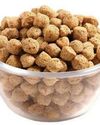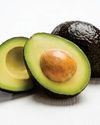
The plant Camellia sinensis a member of the Theaceae family. In India, tea industry originated after 1823 as result of discovery of tea plant in Assam this discovery of indigenous tea in Assam in 1823 led to the origins of the tea industry in India. Black tea, green tea and oolong tea are most commonly consumed teas.India is one of the largest tea producers in the world and about 70% of tea produced is consumed within India itself. India is the largest producer and consumer of black tea in the world. In India tea is grown in 16 states out of which four states Assam, WestBengal, Tamil Nadu and Kerala account for about 96%. The tea coming from Darjeeling, Assam and Nilgiris are well known for their distinctive quality. The important constituents are present in tea leaves that affect the brew quality these are; caffeine, which gives the stimulating effect; tannins and related compounds, colour, strength and astringency is due to this components; essential oils, which gives flavour and aroma[2]. Tea found to be anti-cariogenic, anti-microbial, anti-inflammatory, anti-oxidant and used as an effective preventive agent against various infections. The popularity of tea is due to its sensory properties, relatively low retail price and apparent health benefits.
Post-harvest technology:
1) Harvesting: Plucking of tea leaves carried out by two methods. a) Light plucking - In this method only one bud along with the two immature leaves is plucked. b) Hard plucking - In this method along with bud and immature leaves mother leaves are also plucked.
2) Withering: It involves biochemical and physical preparation of fresh leaves. The harvested leaves are spread on trays and artificial blowing of air is carried out. The moisture content brought down to 50% for 18-24hrs. The main objective of the withering is to increase the cell permeability and intensify the enzyme and substrate.
This story is from the July 2020 edition of Food & Beverages Processing.
Start your 7-day Magzter GOLD free trial to access thousands of curated premium stories, and 9,000+ magazines and newspapers.
Already a subscriber ? Sign In
This story is from the July 2020 edition of Food & Beverages Processing.
Start your 7-day Magzter GOLD free trial to access thousands of curated premium stories, and 9,000+ magazines and newspapers.
Already a subscriber? Sign In

Therapeutic Use Of Indian Winter Cherry (Ashwagandha)
Ashwagandha is one of the most important herbs in Ayurveda, which is a traditional form of alternative medicine based on Indian principles of natural healing. Ashwagandha is a small, woody shrub in the Solanaceae family that grows about two feet in height.

The Dairy Chain Revolution: Ensuring Freshness and Efficiency
Dairy products are an integral part of the food processing industry, forming milk, cheese, yogurt, and butter are highly perishable and demand meticulous care to preserve their quality and safety throughout their journey from farm to consumer.

Plant-Based Proteins from Soybean: A Comprehensive Exploration
Introduction - In recent years, the global food landscape has witnessed a remarkable shift toward plant-based diets, driven by a growing awareness of health, environmental sustainability, and ethical considerations.

Avocado: The Green Ally in the Fight Against Diabetes
In a world inundated with processed foods laden with excessive sugars, salts, and artificial additives, rates of diabetes across the world have been rising over the past decades link.

Inspection Technology from KHS: Precision and early detection for holistic line thinking
KHS GmbH continuously develops and modernizes its inspection technology.

Packaging for the Future: How Aseptic Solutions are Transforming the Dairy Industry
Introduction - The Dairy Aseptic Packaging Market T is a dynamic and transformative sector within the rapidly evolving food and beverage industry.

Sidel introduces its breakthrough bottle washer with powerful dual technology - Hydra Ultrasonic
With beverage bottlers requiring a solution that reduces production costs while improving their environmental footprint, Sidel has launched its new bottle washer which combines chemical and ultrasound technology for the highest performance. Sidel will unveil Hydra Ultrasonic for the first time at the international trade show, BrauBeviale.

Revolutionizing Dairy Packaging: Technology & Innovations Shaping the Future
Dairy packaging plays a vital role in maintaining the quality and safety of a wide variety of products, including milk, butter, cheese, and yogurt.

Proost: Brewing Passion, Driving Innovation, Redefining Quality
In an exclusive conversation Mr. Tarun Bhargava, Co-Founder & CEO of Proost, speaks about the brand's inspiring journey, its unique approach to brewing, and the innovative strategies driving its success. From Proost's commitment to quality and sustainability to its adaptability in a dynamic market, Tarun shares insights into what makes Proost a standout in the beverage industry.

Non-Alcoholic Beverages: A Booming Industry Across Global Markets
The global non-alcoholic beverage market has been expanding steadily, with an estimated value of over USD 1 trillion as of 2023. This growth is expected to continue, fueled by a shift in consumer preferences toward healthier and more mindful consumption habits. The market encompasses a variety of products, including non-alcoholic beers, soft drinks, juices, and functional beverages like energy drinks and flavored waters.